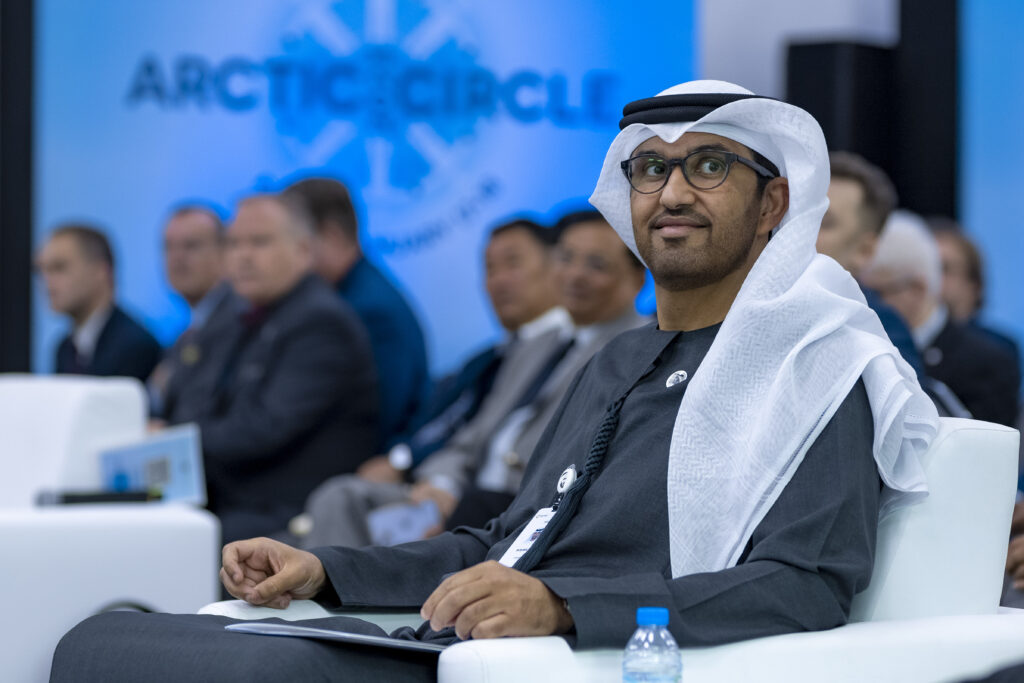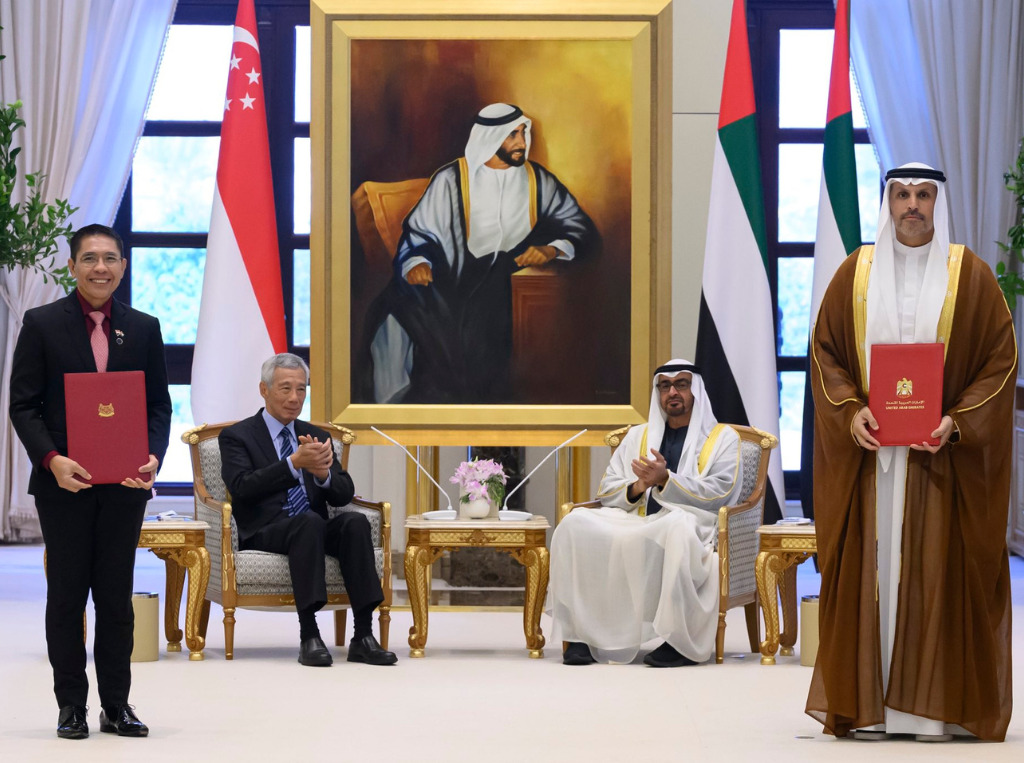Singapore & UAE Sign Deals to Combat Climate Change, Support Green Economy & Boost Food Security
5 Mins Read
Singapore and the UAE have signed eight deals, which include strengthening their commitments to reducing carbon emissions, adapting to climate change and supporting climate-vulnerable nations at the COP28 climate conference, which the latter hosts next month.
A month before the UAE hosts COP28, its president Sheikh Mohamed Bin Zayed Al Nahyan hosted Singapore prime minister Lee Hsien Loong in Abu Dhabi to discuss the countries’ bilateral relations and advance their climate-related commitments.
The meeting saw the two leaders sign eight deals, six of which were related to climate change and digital tech. These included pacts to meet ambitious climate goals in terms of cutting emissions, adapting to the climate crisis and offering financial support to countries vulnerable to climate change at the upcoming UN climate summit.
“Both leaders reiterated their concern at the scale of impacts associated with the adverse effects of climate change that are already resulting in economic and non-economic losses and damage, and are being witnessed globally, especially by the most vulnerable,” the two countries said in a joint statement.
Singapore and the UAE agreed to deepen their collaboration across the green economy, low-carbon energy and food security, to advance their climate goals and generate green jobs. Both nations have pledged to reach net-zero emissions by 2050 – the UAE was the first Gulf state to commit to a mid-century timeline.
Boosting climate finance and food security

Lee and Shiekh Mohamed said that achieving financial goals is key to restoring trust around climate change within the international community. They stressed the importance of the 2009 global commitment to mobilise $100B in climate funds per year for developing countries, and doubling the amount needed by those nations to tackle climate impacts by 2025.
This goal is, however, commonly understood to be a fraction of what’s needed – an estimated $6T by 2030 – to support these countries as per the Paris Agreement. However, a report by Oxfam and the Organization for Economic Co-operation and Development found that the actual flow of climate finance from developed to developing countries was between $21B and $83.3B in 2020 – well below the agreed sums.
To that end, Singapore and the UAE said they will support efforts to administer new investment – including a fund – to help these vulnerable nations deal with climate-induced loss and damage. As part of one of the other eight deals, both countries will work together on research and innovation, as well as set standards and certification for hydrogen fuel and carbon capture and storage.
Another deal signed was the Green Economy Framework Agreement, which will see Singapore and the UAE work on green transportation projects, low-carbon energy and tech, sustainable solutions, and trade, investment and carbon markets.
“It was a fruitful discussion on the opportunities that decarbonisation, including the production of renewables and hydrogen, could bring for the UAE and Singapore,” said Lee’s press secretary Chang Li Lin.
The countries also expanded on an existing agreement on climate change and protection, which now includes food and water security. The UAE imports 80-90% of its food supply, while Singapore’s food imports amount to 90%. The former ranks 23rd on the latest Global Food Security Index, but nearly a fifth of its population lives below the poverty line – and the latter is 27th on the list, dropping from first in 2019.
Both states have plans to reduce their reliance on imports and boost food security. Singapore’s 30 by 30 initiative aims to produce 30% of all food consumed domestically by 2030. Meanwhile, the UAE’s new food and agriculture strategy hopes to bolster the sector’s value to $10B and create 20,000 jobs by 2025.
Gulf climate commitments have oil problems

Li and Sheikh Mohamed visited the offices of the UAE’s national oil company Adnoc too, where they were briefed by CEO Sultan Al Jaber on the UAE’s energy transition plans. He also happens to be the president of COP28, billed as the first food-focused UN climate summit when it commences next month. In August, Al Jaber confirmed that the conference will be serving mostly plant-based food as part of its catering menu – a positive step recognising the climate impact of livestock farming, which accounts for about 60% of all food emissions, according to one estimate.
However, there are issues facing the COP28 presidency. According to the Guardian, the UAE has the world’s third-largest net-zero-busting plans for oil and gas expansion, and its new fossil fuel developments are incompatible with the 2050 net-zero goals. Additionally, a leaked document reveals that Adnoc hasn’t disclosed its emissions or published a sustainability report since 2016, though it adds the company is “currently conducting necessary studies”. Moreover, global organisation Climate Action Tracker rates the UAE’s environmental plans as “insufficient”.
So there are a bunch of issues to contend with for the UAE – as there are for its neighbour Saudi Arabia, which Li also visited before his Abu Dhabi trip. There, Singapore welcomed Saudi Arabia’s Saudi and Middle East Green Initiatives, and expressed support for the latter’s implementation of the Circular Carbon Economy approach. The two countries highlighted the importance of the Framework Convention on Climate Change and the Paris Agreement, stressing the need to develop and implement climate agreements with a focus on emissions over sources.
Saudi Arabia, which has a 2060 net-zero goal and has inked deals to develop alt-protein products with local plants, launched a sustainable agriculture challenge this year, which calls for climate-smart farming solutions to improve food production and address food security. But it actually surpasses the UAE to be the nation with the world’s biggest net-zero-busting plans for oil and gas expansion.
So while Singapore’s Middle Eastern visit brought about a lot of promises, real change will only come through tangible action.



